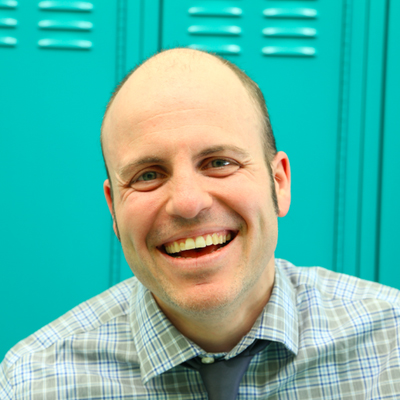Strand Description
Though the challenges facing our classrooms, schools, and profession may be daunting, there exist multiple pathways and opportunities for innovation and achievement. While some may approach problem solving from a posture of logic and others from a place of creativity, we believe the most effective and sustainable solutions emerge from the fusion of computer science and human-centered design. By looking deeply at the essential elements of computational thinking through a lens of empathy and experimentation, participants in this strand will arrive with what troubles them and depart with well-calculated and beautifully imagined possibilities.
Strand Outcomes
By the end of this workshop, participants will:
Strand Leaders
Dan Ryder | Learning Facilitator | CRCS OverMan | Skowhegan, Maine
danryder207@gmail.com; @wickeddecent
Idea wrangler, design thinker and head scratcher, Dan Ryder serves as Director of Design & Innovation at Community Regional Charter School, a project-based, unapologetically learner-centered public charter school in rural Skowhegan, Maine. His daily work integrates best practices of human-centered design, restorative practices, social emotional learning and makerspaces. He’s the co-author of INTENTION: Critical Creativity in the Classroom (Blend Learning, 2019), writer of PANELS & PERSPECTIVES: Creating Comics in the EFL Classroom (US Dept of State, 2019), and co-creator of Critical Creativity in Action (US Dept of State, 2022), a 48-card deck of activities for bringing creative expression into any classroom.

Jeff Bailey | Technology Teacher | Mountain Valley High School | Rumford, MAine
Jeff Bailey is a technology teacher at Mountain Valley High School. He teaches Computer Science, CAD, architectural design and engineering, and serves as the co-advisor of the Civil Rights Team. He spent ten years as an English teacher at MVHS before switching to technology. Jeff holds a Bachelor’s of Science in secondary education from the University of Maine at Farmington and a Master’s of Science in Educational Technology from the University of Maine. Jeff is also an adjunct instructor in the UMaine Graduate Education program, focusing on Computer Science and Computational Thinking. He was also the 2014 Oxford County Teacher of the Year and Lawrence O’Toole Award recipient. He lives in Jay Maine with his wife and daughter. He stays busy helping with his daughter’s robotics team, running table top and role playing games and working on matters of equity and anti-racism in his school and community.

